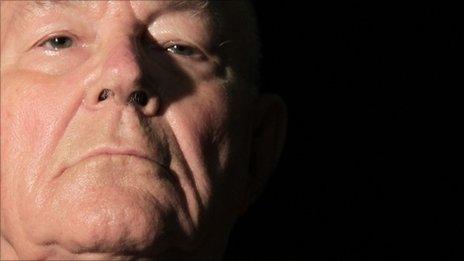Holocaust trial: Former Stutthof guard on trial in Germany
- Published
Bruno Dey hid his face as he appeared in a Hamburg court
A 93-year-old man on trial in Germany for crimes of complicity in mass murder at a Nazi death camp during World War Two has voiced regret for his actions.
Bruno Dey is accused of contributing to the killings of 5,230 prisoners between 1944 and 1945 in the Stutthof camp in what is now northern Poland.
Mr Dey admitted serving there and having knowledge of atrocities being carried out at the camp.
But the former SS guard said he was not complicit in any murders.
Still, his lawyer told AFP news agency that "he felt sorry for what he did".
He also said it was clear to Mr Dey that inmates at the camp were there not because they were criminals but for "anti-Semitic, racist and other reasons".
"He had compassion for them," he said. "But he did not see himself in a position to free them."
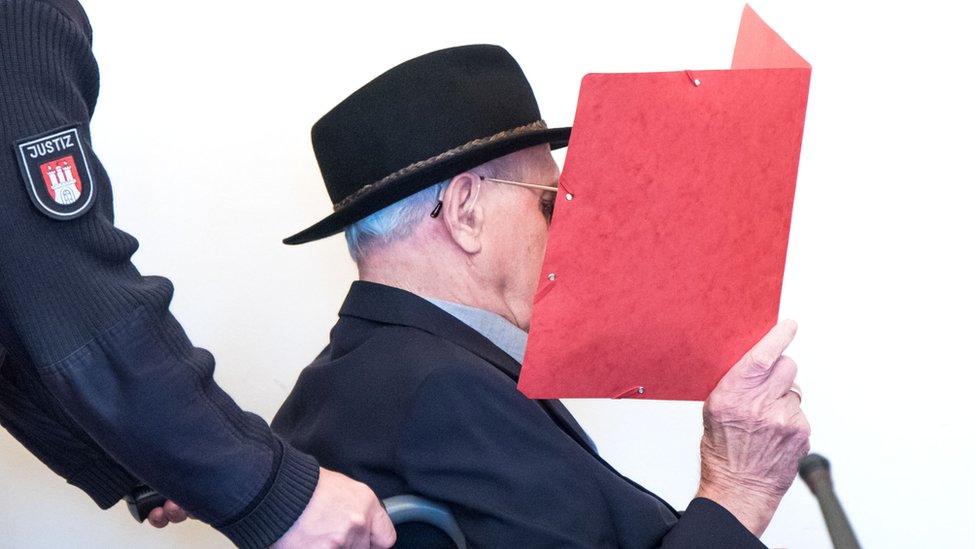
Mr Dey - who was about 17 when posted to Stutthof - hid is face with a folder in court on Thursday
He added that Mr Dey "did not join the SS voluntarily" and that "he did not seek to serve at the concentration camp".
In court on Thursday, Mr Dey - seated in a wheelchair and wearing a hat and sunglasses - shielded his face behind a red folder.
The trial is likely to be one of the last against a former Nazi guard.
The hearings will be restricted to two-hour sessions no more than twice a week, because of Mr Dey's ill-health.
Holocaust survivors: The families who weren’t meant to live
Why now?
The prosecution alleges that Mr Dey - who was about 17 when posted to Stutthof - was one of the "cogs of the murder machine".
German newspaper Der Spiegel reports, external that he is accused specifically of killing 5,000 people by creating and maintaining hostile conditions, 200 by gassing and 30 using a Genickschussanlage - a device for surprise executions with victims shot in the back of the neck.
The court will decide whether he "knowingly supported" the killing of Jewish prisoners in particular, as the prosecution alleges.
As he was not yet 21 at the time, Mr Dey is being tried in a juvenile court.
Prosecutors only opened the case against Mr Dey in 2016, after investigators found SS clothing with his name and signature in the Stutthof archives.
His trial comes after a landmark case that overturned a 1969 ruling that being a staff member at Auschwitz was not enough to secure a conviction.
Oskar Groening, known as the bookkeeper of Auschwitz, was given a four-year prison sentence for being accessory to the murder of 300,000 Jews in 2016, without evidence of involvement in a specific killing - a move hailed by Nazi hunters as a major shift.
Explaining the Holocaust to young people
Addressing the importance of the trial, Jewish groups pointed to contemporary, far-right anti-Semitic violence, such as the deadly shooting at a synagogue in eastern Germany last week.
But Mr Dey's advanced age could affect proceedings. Johann Rehbogen - also accused of complicity in mass murder at Stutthof - had his trial suspended in December 2018 after the 95-year-old was hospitalised. It is unlikely proceedings will be restarted.
What was Stutthoff?
Stutthof was set up in September 1939 east of Danzig - now the Polish city of Gdansk - as an internment camp in the wake of the Nazi invasion of Poland. It was officially designated a concentration camp in 1942.
It was the first such camp built outside German borders in the war and the last to be liberated, by the Soviet army on 9 May 1945.
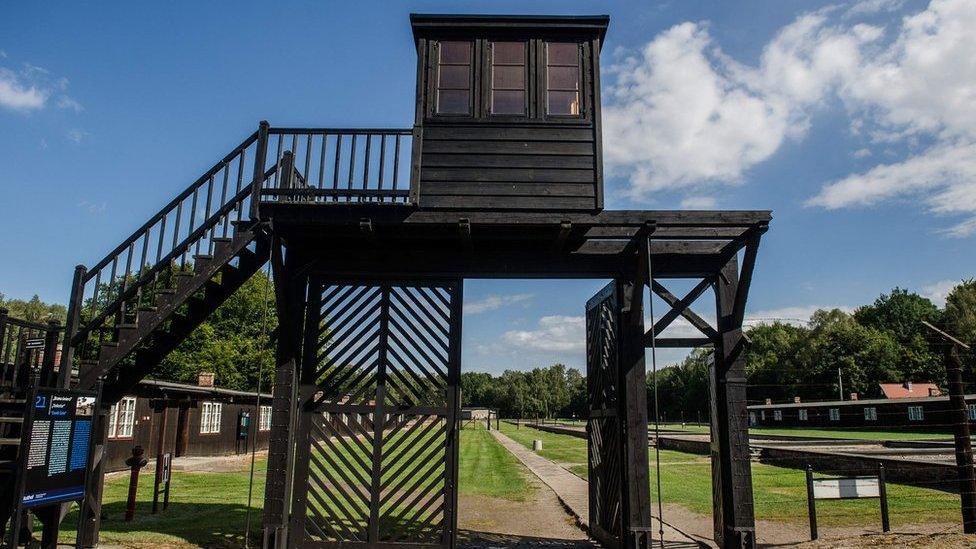
Stutthof has been preserved as a museum
More than 65,000 people are thought to have died in the camp. Guards began using gas chambers in June 1944, while a number of forced labour factories were set up in the area to help make equipment for the Nazi war machine.
There is evidence that Dr Rudolf Spanner used fat collected from human corpses at Stutthof to make soap, external.
- Published6 November 2018
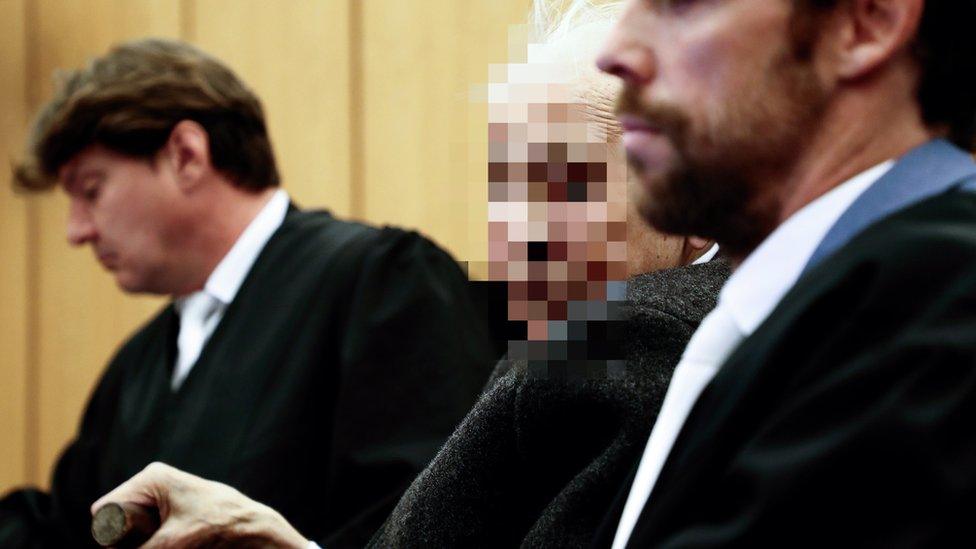
- Published16 January 2018
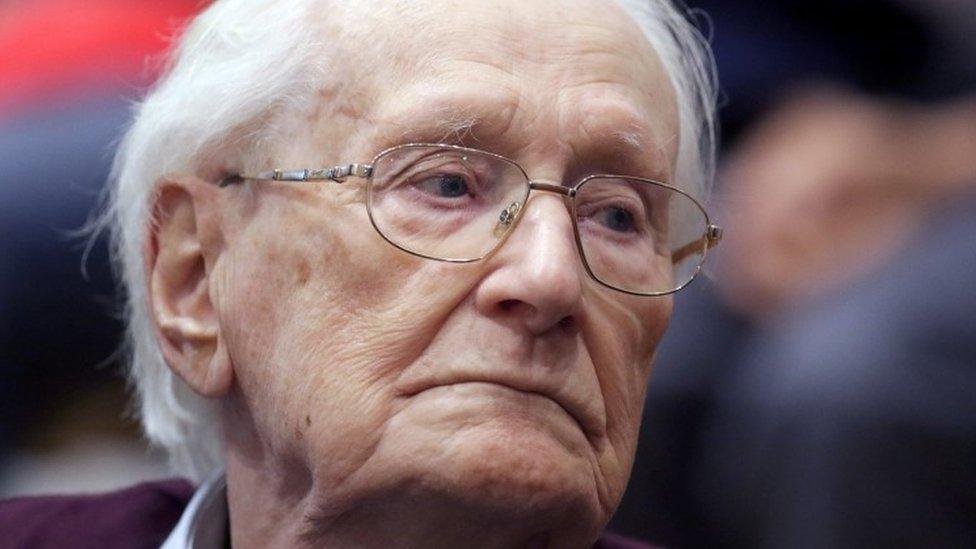
- Published23 January 2012

- Published12 May 2011
